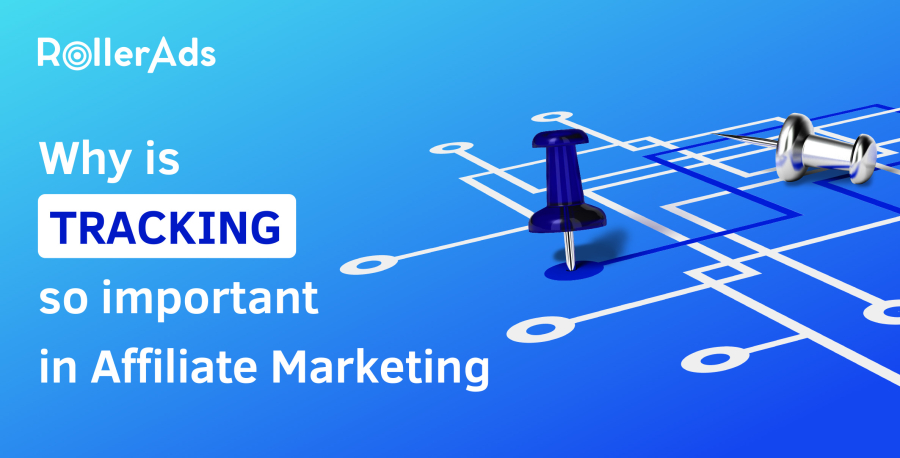Why Is Tracking So Important in Affiliate Marketing?
Affiliate marketing is defined as the use of a content platform (either as a content creator or distribution platform) to increase the sales of an unrelated product, service, or brand. Usually, a content platform that hosts the links to the product or service does so to earn a commission on sales. There are different types of affiliate marketing with different commission structures, but the most common model is the one that is called CPA (aka cost per acquisition). The company only pays money if the end-user makes a purchase via the link spotlighted on a content platform. CPC (cost per click) and CPL (cost per lead) are more common in some digital marketing spheres which is a great example of the flexibility of affiliate marketing.
What is Tracking Software?
There is a number of different tools used to manage affiliate marketing. Tracking Software is often seen as the most integral part of any affiliate marketing strategy. A tracking system gives both companies and their affiliates an opportunity to carefully examine the data related to sales generation and other activities. After analyzing the numbers, trackers can suggest a number of recommendations to both parties and can even build projections for certain scenarios. With different metrics being available, it’s incredibly easy to course-correct and generate more revenue than ever before. In short, tracking software helps everyone involved to maximize their profits which is a win-win.
Different Types of Tracking Software
- Server. The key benefits of this type of tacker include: fast response, unlimited traffic volume, and automatic saving of the data. Servers are relatively cheap and are more suited for projects with higher traffic volume.
- Cloud. It’s incredibly easy to set this kind of tracker up. They provide more functionality and are more efficient on average.
Main Functions of the Tracking Software:
- To track all activity on your affiliates’ sites in real time. This includes all sales, clicks, and more.
- To perform split testing.
- To gather and categorize user data.
- To block bots.
- To analyze the performance of traffic sources.
- To recommend changes and improvements.
- To monitor important metrics in real time.
Of course, this is only the tip of the iceberg and most modern trackers offer a much, much wider array of functions. We did mention that the functions here are the “main” ones.
Main Tasks of Tracking Software
A well-picked tracker will be able to streamline and simplify all of your marketing activities, from affiliate testing to maximizing your revenue. These are the tasks that tracking software accomplishes in order to keep things running smoothly:
- Efficiency testing. This has mostly to do with conversation and revenue. For example, it’s likely that one campaign will generate more money than another. Ideally, you should single out the things that make one campaign more lucrative than the other.
- Revenue maximization. You’ll be able to divide and re-direct your traffic in order to increase profits. You can divide and re-direct based on operating systems, geo, and various other attributes.
- Easy traffic redirection. It won’t take more than two mouse clicks to redirect traffic to a different target.
- Mileage reporting. It is pretty self-explanatory.
- Automatization. For instance, when you reach maximum traffic capacity in one campaign, a tracker will automatically switch onto the next.
The Most Important Tracking Metrics
When it comes to tracking metrics, the list is extremely long and covers almost everything aspect of the process. Nonetheless, there are only two important metrics that you need to focus on: conversion rate and sales per affiliate. The first is among the most frequently used KPIs in digital marketing. A relatively high conversion rate for a campaign means that your customers are more likely to convert, i.e. make you money. It’s incredibly easy to understand what kind of conversion rate is required to earn a certain amount of revenue.
The second metric is an all-important one that separates the good affiliate from the bad ones. It’s generally more complex, but the simplest way of explaining its importance is this – you’ll be able to single out your top earners and you’ll be able to figure out which affiliates need to be worked on, so to speak. The automated reports that a tracker produces will be incredibly useful here. They’ll provide you with important insights and they’ll be incredibly easy to digest.
Recommended Trackers with a Proven Track Record
Down below you can find several popular trackers:
- Adsbridge. You are not going to believe just how fast it is. It was ranked the top traffic trackers in the industry by several influential publications. Adsbridge is incredibly fast to set up, incredibly fast to run, incredibly fast to evaluate, and they provide you with real-time updates with no additional clicks necessary. Additional key benefits include: one tab is needed to manage all campaigns; highly customizable reports; ability to track bots, frauds, and other undesirable sources of traffic.
- Adsbridge’s biggest competitor is AppsFlyer. It offers a more personalized approach and is known to be one of the most reasonably-priced traffic trackers out there. Its main benefits include: mobile-friendly; PRO tools available for free; high speed; individual price rates.
- Another tracker you should consider is Bemob. It’s somewhat of a dark horse and it’s different from the other trackers that we’ve listed here. Some of the features will definitely help it make it to the top of your list.
Actually, there is a plenty of trackers out there: Voluum, HasOffers, Binom, Thrivetracker, Keitaro, Peerclick, Redtrack. Funnelfux, Landingtrack, Ttrackingdesk, Kintura, Affise, Cake etc.
If you need any recommendations on the tracker integration with RollerAds feel free to contact the support team!





